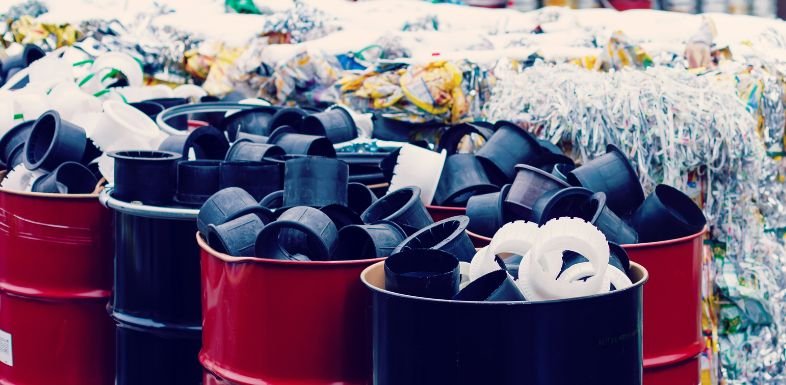Waste Generation Challenges for Small Companies

Small businesses face significant challenges in managing waste. With these practical strategies, they can reduce waste generation and save money.
Small businesses face enough hurdles in this world—they don’t need waste generation issues compounding them. As concern for the environment increases, and legislation governing waste becomes stricter, learning how to manage waste more efficiently is important. Here are several waste generation challenges for small companies and how to tackle these issues with minimal fuss.
What Is Waste Generation?
In short, waste generation refers to the creation of extraneous refuse through business operations, including manufacturing, packaging, and everyday activities. Waste comes in different forms, extending beyond the simple garbage we generate at home and toss in the trash. Here are four types of waste:
• Municipal solid waste (MSW): Everyday trash like packaging, food scraps, and paper.
• Industrial waste: Byproducts from industrial activities, often including scrap materials.
• Hazardous waste: Dangerous materials that are corrosive, toxic, reactive, or ignitable.
• Construction and demolition debris: Waste from building projects that can include wood, stones, asbestos, and more.
Understanding these categories and applying the correct labels to your company’s waste is integral to optimizing waste reduction.
Benefits of Reducing Waste
Decreasing waste output has several obvious advantages. Cost savings is the clearest benefit—by reducing waste, you spend less on raw materials and disposal. Less waste also benefits the environment, as it means reduced greenhouse emissions and cleaner landfills. A cleaner company means a cleaner world.
Lastly, reducing waste can improve your brand’s reputation. Many consumers favor eco-conscious companies, so showing that you are conscientious about waste improves customer loyalty.
Steps To Reduce Waste
No matter how efficient you think you are, there’s always room for improvement! Begin by looking at your company’s waste and deciding what to do next. Here are some ideas:
Conduct a Waste Audit
Analyze where waste is coming from and how much is produced. This helps set goals and benchmarks.
Reduce, Reuse, Recycle
Known as the three Rs, these timeless principles are highly effective. Basic steps to take include minimizing packaging, transitioning to digital documentation, and creatively repurposing materials. Educate and encourage employees to participate in waste reduction initiatives as well.
Set Up Recycling Stations
Clearly labeled bins make it easy for employees to separate waste into recyclable categories like paper, plastic, and metal. Look into ways to profit from used materials. Your garbage could be another company’s treasure.
These are just a few waste generation challenges for small companies and tips to deal with them. Never stop looking for ways to reduce your status as a waste generator. Managing waste is a crucial component of running a successful business. By implementing these strategies, you can reduce costs, meet regulatory requirements, and foster a positive brand image that appeals to clients, customers, and the community. Start today, and make waste reduction a core part of your business strategy!
